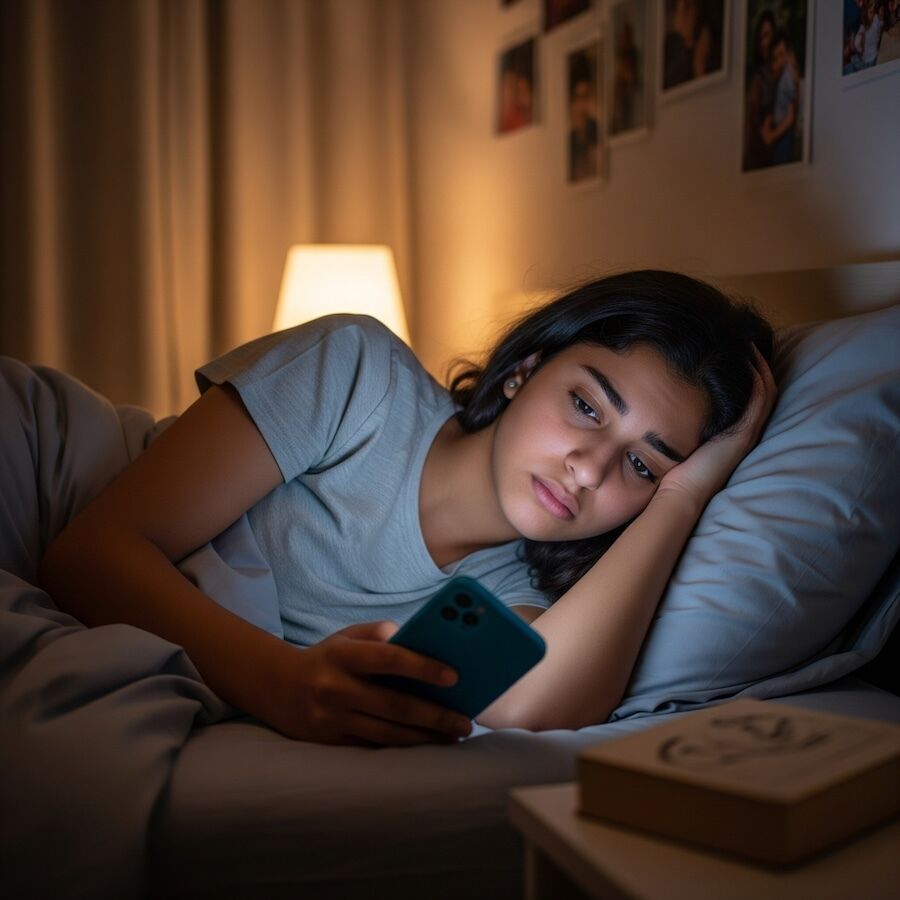A new report from Cairo’s National Center for Child Wellbeing is raising alarms among parents and educators: Egyptian teens are sleeping less than ever, with many citing late-night social media use as the main culprit. But the consequences go far beyond tired mornings—chronic sleep deprivation is quietly eroding teens’ ability to engage with family life and take on responsibilities at home.
The Digital Sleep Crisis
Platforms like TikTok, Instagram, and WhatsApp have become an integral part of teen life in Egypt. But as screen time stretches into the night, more teens are struggling to fall asleep, stay asleep, and wake up refreshed. The report found that teens who use their phones after midnight are twice as likely to report feeling exhausted, irritable, or unmotivated the next day.
More Than Just Tiredness
Sleep deprivation doesn’t just mean yawning through class. Psychologists warn that lack of rest can lead to mood swings, reduced empathy, and a reluctance to participate in family routines or help with chores. Parents describe teens who are “too tired” to set the table or join conversations, retreating instead to their rooms and devices.
What Can Parents Do?
Experts recommend a balanced approach:
- Open Conversations: Talk with teens about the effects of sleep loss—not as punishment, but as a way to support their well-being.
- Model Healthy Habits: Set an example by limiting your own screen time before bed and prioritizing rest.
- Create a Tech-Free Zone: Encourage leaving devices outside bedrooms at night to promote better sleep.
- Empower Teens: Involve them in setting their own routines and understanding the benefits of sleep for mood, focus, and family life.







Leave a Reply
You must be logged in to post a comment.